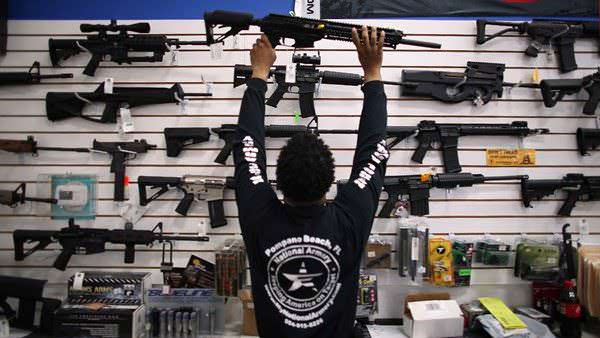
Some of the most radical changes proposed in the new ATF rule are to completely redefine “personal collection,” “personal collection of firearms,” “personal firearms collection,” and “hobby.” Three of the long-term exceptions to “engaged in the business” have been:
a person who makes occasional sales, exchanges, or purchases of firearms for the enhancement of a personal collection or for a hobby, or who sells all or part of his personal collection of firearms;
Personal collection of firearms has long meant “the firearms owned by a person.”
None of the wording of those exceptions was changed by the Bipartisan Safer Communities Act or BSCA, which went into effect on June 25, 2022. The ATF is using BSCA to justify its power grab with the new rule. Here is the current definition of “engaged in the business.” From the Legal Information Institute:
(C) as applied to a dealer in firearms as defined in section 921(a)(11)(A), a person who devotes time, attention, and labor to dealing in firearms as a regular course of trade or business to predominantly earn a profit through the repetitive purchase and resale of firearms, but such term shall not include a person who makes occasional sales, exchanges, or purchases of firearms for the enhancement of a personal collection or for a hobby, or who sells all or part of his personal collection of firearms.
This has been a safety valve to prevent the ATF from saying anyone who sells a few firearms here, and there is a “dealer in firearms”. ATF has never been willing to say how many firearms constitute “occasional sales, exchanges, or purchases.” They like to be able to interpret the definition differently in different circumstances. To emphasize: the wording of these three exceptions has not been changed by the BSCA.
With the new rule, the ATF wants to collapse those three exceptions into a very limited definition. Essentially, the proposed definition excludes all personal firearms owned or acquired for defensive purposes or purchased and resold for pleasure and interest as a hobby. From the proposed rule, pages 39-40:
E. Definition of “Personal collection,” “personal collection of firearms,” and “personal firearms collection”
Specifically, this rule proposes to define “personal collection,” “personal collection of firearms,” and “personal firearms collection” as “personal firearms that a person accumulates for study, comparison, exhibition, or for a hobby (e.g., noncommercial, recreational activities for personal enjoyment such as hunting, or skeet, target, or competition shooting).” This reflects a common definition of the terms “collection” and “hobby.”85 The phrase “or for a hobby” was adopted from 18 U.S.C. 921(a)(21)(C), which excludes from the definition of “engaged in the business” firearms acquired “for” a hobby. Also expressly excluded from the definition of “personal collection” is “any firearm purchased for resale or made with the predominant intent to earn a profit” because of their inherently commercial nature. 18 U.S.C. 921(a)(21)(C).
The above definition excludes from a personal collection of firearms, those firearms primarily owned for defense, the most common reason to own firearms in the USA. It excludes those people who buy and sell a few firearms a year for a hobby.
This correspondent knows quite a few people who like to buy a new gun, try it out, then sell it, buy another gun, see if they like it, and sell it. Those people are currently protected under the “hobby” exception but would almost certainly be prosecuted as a “dealer” with the change in definition proposed by the Biden administration. Some people enjoy the camaraderie, the haggling, the examination of firearms, and the exchange of tall tales while trading, buying, and selling. The enjoyment is the primary purpose, far overriding any profit. The proposed language excludes, by definition, the occasional sales, exchanges, or purchases for a hobby. It only allows hobbies to be defined as “noncommercial, recreational activities for personal enjoyment such as hunting, or skeet, target, or competition shooting”.
Currently, a person who sells part or all of their personal collection of firearms, perhaps because they need the money, perhaps because they decide they want to obtain different firearms, are protected. With the proposed definition, they would only be protected if the firearms were not purchased predominately for defensive purposes, and they were not sold because they needed the money.
The radical definitional changes were not approved by Congress in law. They completely upend the long-standing exclusion of occasional sales, exchanges, or purchases. They appear to be designed to eliminate the defense of self and others from the “approved” purposes of owning firearms. The Supreme Court has long recognized the defense of self and others as one of the primary purposes protected by the Second Amendment.
About Dean Weingarten:
Dean Weingarten has been a peace officer, a military officer, was on the University of Wisconsin Pistol Team for four years, and was first certified to teach firearms safety in 1973. He taught the Arizona concealed carry course for fifteen years until the goal of Constitutional Carry was attained. He has degrees in meteorology and mining engineering, and retired from the Department of Defense after a 30 year career in Army Research, Development, Testing, and Evaluation.

